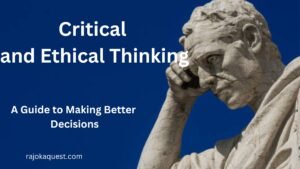10 Books Every Conservative Must Read

10 Books Every Conservative Must Read
10 Books Every Conservative Must Read
Conservatives may find themselves looking for their ideology’s roots and fundamental ideas in a fast-changing society where fresh ideas challenge established wisdom. This quest is not only intellectual; it’s about realizing the foundation upon which conservative ideas rest. Whether you have lifetime allegiance to conservative views or are fresh to them, reading literature that explores these ideas is essential. These volumes present viewpoints that support the worth of small government, personal liberty, and tradition. Every conservative has to study these ten novels to appreciate better the intellectual legacy of the movement and its applicability in modern society.
The Importance of Book Reading
Reading books holds a particular role in both intellectual and personal growth. Engaging with essential books helps conservatives create a collection and deepen their own knowledge of their values. Reading provides various essential advantages:
Intellectual Growth: Books increase a person’s knowledge and comprehension of complex concepts. Classic writings help readers better understand the subtleties of conservative ideas and the historical background that influences them.
Critical Thinking: Reading many points of view and arguments improves critical thinking ability. These works urge readers to examine their ideas, weigh different points of view, and polish their arguments.
Historical Perspective: From a historical standpoint, many conservative ideas have changed. Reading historical books helps one understand the evolution of these concepts and their continuing relevance today.
Informed Advocacy: Understanding the logical underpinnings of conservatism helps one to argue their ideas more successfully. Well-read conservatives are more suited for meaningful policy debates and conversations.
Cultural Enrichment: Books provide a peek into conservative philosophical and cultural legacy. They deepen one’s respect for the customs and values that have molded societies.
10 Books Every Conservative Must Read
1. The Road to Serfdom by Friedrich Hayek
Austrian economist Friedrich Hayek’s foundational work, The Road to Serfdom, Published during World War II, this book acts as a warning on the perils of state intervention over economic life. Hayek contends that government economic intervention causes individual liberties to be lost and finally results in authoritarianism. He shows how unintentionally adverse effects of even well-meaning laws could compromise personal liberty. Understanding the conservative case for free markets and limited government requires an essential reading of Hayek’s work. Conservatives who study this text will understand why general liberty depends on economic freedom.
2. Reflections on the Revolution in France by Edmund Burke
Edmund Burke’s Reflections on the Revolution in France is often regarded as the foundation of modern conservative theory. In response to the extreme upheaval of the French Revolution, Burke strongly criticizes the revolutionaries’ attempt to rebuild society from the bottom up. He stresses respect for accepted institutions, societal continuity, and legacy. Burke’s writings remind us that drastic transformation—mainly when it aims to destroy long-standing customs—may cause anarchy and tyranny. Conservative doctrine revolves mainly around his defense of gradualism and mistrust of fast, ideologically driven change.
3. The Conservative Mind by Russell Kirk
The Conservative Mind by Russell Kirk offers a thorough overview of conservative ideas spanning the 18th and 20th centuries. From Edmund Burke to T.S. Eliot, Kirk highlights influential philosophers who have affected the movement, tracing conservatism’s intellectual legacy. Based on a conviction in a transcendent moral order, a sense of continuity, and a respect for established institutions and norms, Kirk contends that conservatism is a political posture and a way of viewing the world. Understanding the philosophical legacy of conservatism and the reasons behind its continuing relevance in modern society depends on his work, which is a great tool.
4. American democracy, as described by Alexis de Tocqueville
Early in the 19th century, Alexis de Tocqueville’s Democracy in America presents an outsider’s viewpoint on American society and democratic processes. With an eye towards how the United States manages the balance between liberty and equality, Tocqueville examines the advantages and possible drawbacks of democracy. Conservative beliefs will find resonance in his observations on the significance of civil society, the perils of centralizing, and the part religion plays in preserving moral order. Tocqueville’s writings offer an ageless study of democratic living and the difficulties in maintaining liberty in an equitable society.
5. Witness by Whittaker Chambers
Whittaker Chambers, a former Communist spy turned important player in the American conservative movement, offers a compelling autobiography. Not only is Chambers’s dramatic tale of his split with communism and his part in the Alger Hiss case an exciting story, but it is also a thoughtful meditation on the moral and ideological conflicts of the 20th century. From communism to conservatism, Chambers’s path emphasizes the perils of authoritarian ideas and the need for faith and freedom. His account reminds us of the gravity of the fight between liberty and tyranny.
6. Economics In One Lesson by Henry Hazlitt’s
The superb introduction to free-market economics is found in Henry Hazlitt’s Economics in One Lesson. Hazlitt shows how economic policies impact people and society by promoting accessible business and limited government intrusion by promoting accessible business and limited government intrusion. Hazlitt exposes typical economic misconceptions using understandable language, highlighting government intervention’s long-term effects. Conservatives who wish to grasp the economic ideas behind their convictions and be able to present the case for a free-market economy must read this book.
7. The Quest for Community By Robert Nisbet’s
The Quest for Community by Robert Nisbet thoroughly investigates modernism’s psychological and social effects. According to Nisbet, the fall of conventional social systems, including the family, local communities, and religious institutions, has caused alienation and rising dependence on the centralized government. According to him, people search for security and identity in the state when they lose ties to their community, which increases government authority. In line with the conservative view on the value of social cohesiveness and limited government, Nisbet’s work emphasizes the need for intermediate institutions to maintain personal freedom and social order.
8. God and Man at Yale by William F. Buckley Jr.
William F. Buckley Jr. criticized the secular and socialist impulses he noted at Yale University, his alma school. Rather than advancing atheism and collectivism, Buckley contends that colleges should maintain and promote the ideals of Western civilization, especially Christianity and free-market economics. His criticism of the academic establishment helped spark the modern conservative movement and is still important today as conservatives voice concerns about higher education bias. Buckley’s writings call to defend Western civilization’s moral and intellectual roots.
9. A Conflict of Visions by Thomas Sowell
Thomas Sowell’s A Conflict of Visions separates the “constrained” from the “unconstrained” conceptions of human nature by examining the philosophical foundations of political ideas. Sowell contends that the ideological gulf between conservatives and progressives results from these different points of view: one sees human nature as imperfect and in need of constraint, and the other believes in the perfectibility of man and society. Understanding these essential contrasts helps conservatives better appreciate the causes of their opinions and the opposing ones. Sowell’s study offers a structure for comprehending the ingrained philosophical disputes in modern politics.
10. Liberty and Tyranny by Mark R. Levin
Modern conservative manifesto Mark R. Levin’s Liberty and Tyranny tackles big government’s dangers to American liberties. While criticizing the progressive agenda seeking to increase government authority, Levin describes conservatism’s ideas— limited government, individual liberty, accessible business, and national sovereignty. Levin’s writings are a passionate defense of freedom and a call to action for conservatives hoping to uphold the values upon which the United States was established. Anyone trying to grasp and express the conservative reaction to the problems of contemporary government should read this book.
Beyond the Pages: Applying Conservative Principles
Reading these works is about grasping the fundamental ideas that direct conservative thought and using these ideas to address modern problems, not only a cerebral workout. Whether one supports small government, defends individual liberty, or upholds cultural traditions, these books offer the intellectual weapons required to participate in meaningful political debate.
The Enduring Relevance of Conservative Thought
These works’ concepts are live principles that still influence the conservative movement, not relics from the past. Conservatives want a steady approach that respects the knowledge of the past and is wary of the promises of utopian ideas in a world where fast change is sometimes considered a virtue. The conservative view of the limits of human reason, the need for tradition, and the worth of personal freedom provides a counterpoint to the progressive drive for extreme transformation.
Engaging with the Broader World
These texts also equip conservatives to interact with the world deliberately, sensibly, and informedly. Understanding the intellectual and historical underpinnings of conservatism helps conservatives clearly express their points of view and participate in constructive communication with others who hold different opinions. Such involvement is more crucial than ever in a period of intense political polarization.
Consolidating a Conservative Future
These volumes ultimately offer a road plan for a conservative future. They provide ideas on maintaining the liberties, order, and legacy ideals intact in the face of fresh difficulties. By reading and considering these works, conservatives may deepen their grasp of their own ideas and build the intellectual resilience required to negotiate the complexity of the modern world.
These ten volumes provide a portal to a better understanding of the ideas that have molded conservative opinion for millennia, not only reading tools. They include historical background and modern relevance, therefore offering a thorough investigation of the principles and concepts behind conservatism. For anyone trying to grasp conservatism, these texts are essential.
Conclusion
These ten works thoroughly introduce the ideas and intellectual traditions supporting the conservative perspective. From the value of individual liberty and limited government to the function of tradition and social cohesiveness, every book provides different insights into the fundamental conservative beliefs. Engaging these books will help conservatives clarify their cherished values and enhance their knowledge of their ideas.
Apart from strengthening one’s intellectual basis, reading these texts helps one to interact with the more general conservative legacy. They provide insightful analysis of how to negotiate the difficulties of contemporary government, protect personal liberties, and uphold social peace. These writings remind us of the continuing relevance of conservative views and the need to safeguard the values that have molded our countries in a period of fast transformation and ideological strife.
Reading these core books is ultimately a commitment to intellectual development and comprehending the ideas that direct conservative opinion. Whether your experience with these concepts is fresh or seasoned, these books provide insightful analysis and ageless knowledge. They are tools for interacting with the larger world and preserving the values of freedom and tradition in the face of fresh challenges, not only readings for personal enrichment.
Read more, Click here.



